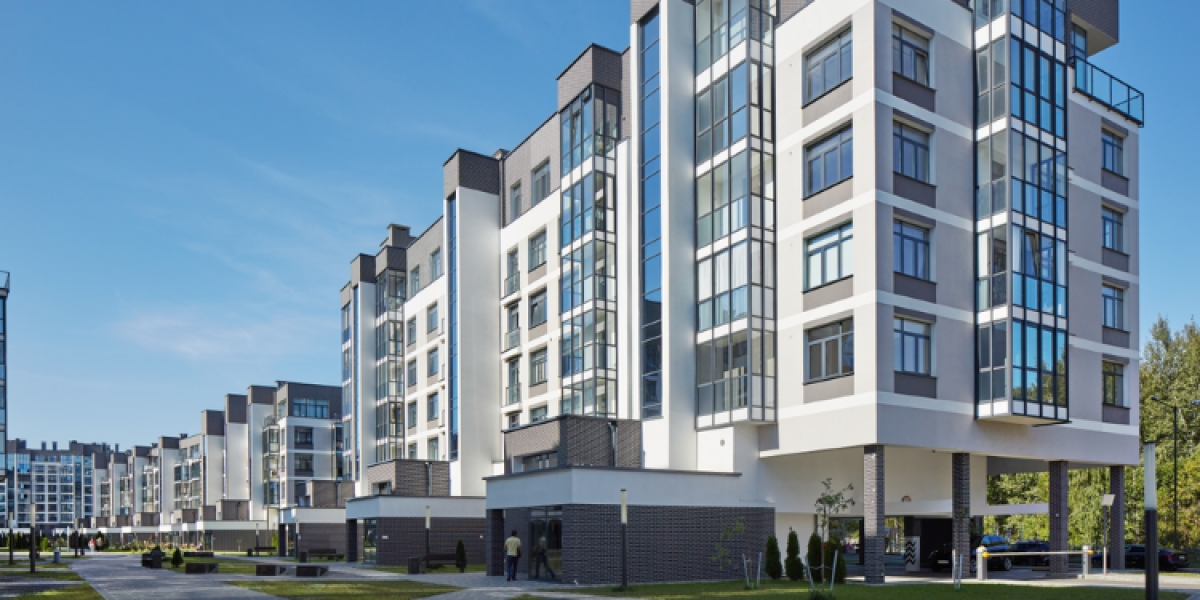
Taxes are a word few people like. In fact, some choose to relocate for this reason only – to escape them. And this is not entirely impossible - as different countries have different approaches to taxation – especially when it comes to non-residents. Today, we are looking into real estate taxes—more precisely, the countries that don't impose them on non-residents.
What is real estate tax and how is it collected?
Real estate tax is a tax collected from property owners. The amount of tax they pay is typically determined by the assessed value of the property, which includes the land and any structures built on it. So, if you own an apartment or a piece of land in most countries, you will need to pay tax on it. Real estate tax is typically levied every year or every six months.
But some countries will not ask you to pay real estate taxes. And if you are considering purchasing property abroad, you may want to know what they are.
Keep in mind that countries that don't impose real estate tax on residents and non-residents may have other fees in place that you will need to take into account when budgeting for your purchase.
Countries that do not have real estate tax
Here's a quick list of countries that do not impose a real estate tax. We've arranged itn in alphabetical order for your convenience:
Bahrain
Bahrain does not impose real estate taxes on residents and non-residents. But there are other fees related to owning property in the country: registration fees, property transfer fees, and a few others.
Real estate prices in Bahrain vary a lot. The most in-demand areas are Manama, Seef, and Juffair – and one-bedroom apartments here can cost upwards of USD 225,000. Housing in less central areas is much more affordable – starting at just over USD 1,000 per square meter.
British Virgin Islands (BVI)
The British Virgin Islands do not have any real estate taxes. The region is also known for favorable business regulations. Namely, there is no direct tax on income, capital gains, or wealth here. Plus, the companies set up in the British Virgin Islands get to benefit from the BVI Business Companies Act, which allows for flexible corporate structures, minimal reporting requirements, and no need for local directors. To open a company here, you will only need a few days. But real estate prices in the BVI are on the higher side - a modest one-bedroom can go for over USD 200,000.
Cambodia
Legally, Cambodia does have an annual property tax. However, the tax rates are so low that they appear insignificant — only 0.01% of the total assessed market value of the property. So, if you buy an apartment in the country valued at USD 100,000, you will only be paying USD 100 in tax – which doesn't sound too bad. You will also need to pay stamp duty at the rate of 4%.
If you decide to rent out your property, you will be paying rental income tax – and how much you pay will depend on whether you are a resident or not (residents pay 10% and non-residents 14%). Just like tax rates, apartments in Cambodia can be considered affordable. You can get a one-bedroom apartment in the capital of Phnom Penh starting from USD 80,000.
Cayman Islands
The Cayman Islands have a reputation for being a tax-friendly environment for businesses. True to that reputation, no property taxes are levied on real estate in this British Overseas Territory, whether it is owned by residents or non-residents. Together with no direct taxation, this attracts many investors and expats to the area.
However, real estate prices in the Caymans are notably expensive. High-end condos and beachfront properties are valued at millions of dollars, and a two-bedroom apartment in a good area can range from USD 455,000 to over USD 3.9 million.
Cook Islands
The Cook Islands do not impose real estate taxes on property owners. This makes them an attractive destination for real estate investors or individuals looking for second homes, vacation property, or a rental investment. The islands are a self-governing territory in free association with New Zealand – which makes most investors feel more secure about purchasing real estate here.
Note that foreign ownership in the Cook Islands is restricted – and if you are an expat, you can only lease the land for up to 60 years. Apartment prices on the islands tend to start at around USD 300,000.
Dominica
Dominica (not to be confused with the Dominican Republic) is a small island in the eastern Caribbean Sea. Its closest geographical neighbors are the French islands of Guadeloupe and Marie-Galante. And yes, Dominica doesn't have the concept of property tax – whether you are a resident of the island or not.
With that said, there are other expenses to take into account. For instance, residents of Canefield and Roseau towns must pay a municipal tax. Plus, if homeowners decide to rent out their property, they will be required to pay a 1% income tax, which is also subject to Value Added Tax.
The cost of buying an apartment in Dominica is on the expensive side, considering the island's size and remote location. Prices start at USD 1,500 per square meter in the capital city of Roseau.
Faroe Islands
There are no real estate taxes on the Faroe Islands. But there is rental income tax. If you are a resident of the islands, you will need to pay tax on all rental income, even if you receive it from outside the country. If you are a non-resident, you will only be paying rental income tax on the property you rent out on the islands – but even though your rental property overseas is not taxable, you will need to report this income on your tax returns.
Prices for apartments in central areas (Tórshavn) start at over USD 200,000. Traveling to more remote areas will get you lower rates - over USD 130,000.
Fiji
Fiji is an archipelago made up of over 300 islands, all of which are located between Hawaii and New Zealand. At the national level, there are no property taxes here, whether you are a resident or not. But do keep in mind that municipalities can make their own decisions on real estate matters—so, it will all come down to where you are looking to buy property.
The cost of buying an apartment in Fiji depends a lot on the exact location. In general, though, property prices start at around USD 100,000.
Georgia
Georgia does actually have property tax—a tax of 1% of the property's market value must be paid annually—by both residents and non-residents. But there are exemptions. For instance, if your annual income comes in under 40,000 GEL (around USD 17,000), you won't be obligated to pay property tax.
Property prices in Georgia vary but are generally affordable. There is a lot of development happening in big cities, and the property market is varied. Apartments in the capital city of Tbilisi start at about USD 1,000 per square meter – and you can get a modest studio starting from around USD 50,000. Prices are even lower in the coastal city of Batumi and regional areas, starting at about USD 800 per square meter.
Israel
There is no real estate tax in Israel, but property owners do pay a municipal fee (arnona). The rate at which the fee is levied depends on the size of the property and the area where it is located. The average price of the fee is around USD 60.
Apartment prices in Tel Aviv are the highest in the country. They start at around USD 7,000 per square meter, and even a small apartment away from the central areas can easily set you back USD 500,000.
Kuwait
Kuwait is well-known for its iconic skyline – and the fascinating mix of old and new. If you are eyeing property in Kuwait, you'd be happy to know that there is no property tax here. However, things are not that simple.
There are quite a few legal restrictions on foreigners owning property in the country, and there are specific conditions that need to be met to be granted a permit to buy real estate. For instance, foreigners need to present proof of a certain level of income. When it comes to real estate prices, mid-range apartments in Kuwait start at around USD 200,000.
Liechtenstein
There is no property tax in Liechtenstein – but if you decide to sell your property, you will be subject to capital gains tax at the rate of as much as 24% in some cases. Rental income is also subject to tax at the minimum rate of just a bit over 3%. There is also a community tax.
Liechtenstein has a very small real estate market – and the prices are high. Apartments in central locations such as Vaduz start at close to USD 9,000 per square meter.
Maldives
The Maldives are not exactly known as a popular destination for buying real estate. But if you are on the market for an apartment in the Maldives, you may be happy to know that there is no real estate tax here.
The islands are a luxury travel destination – but buying housing here is not common – as this is quite an expensive affair. Prices for apartments in the capital Male range from USD 3,000 to 6,000 per square meter. And a small, rather modest studio will set you back upwards of USD 200,000.
Malta
There are no estate taxes in Malta. But if you transfer the property you own, you will be subject to withholding tax at the rate of 5% to 12%. Malta also charges stamp duty on both residents and non-residents. Some areas in Malta – such as the island of Gozo – also charge a preferential tax.
Foreigners can generally purchase property in Malta with restrictions in areas known as Special Designated Areas (SDAs). In non-SDA areas, however, foreign buyers need to first obtain an Acquisition of Immovable Property (AIP) permit. Prices for one-bedroom apartments in Malta start at around USD 130,000.
Monaco
Buying property in Monaco is quite an undertaking. The average price of real estate here is from five to ten million euros. And one out of every two real estate transactions is for housing priced at over 3 million. But, on the bright side, if you do have the money for a pricey home, at least you won't have to pay real estate taxes.
Qatar
There are no property taxes in Qatar – and this makes it an attractive destination for expats looking to buy property. Keep in mind that there are other fees involved in real estate purchases, such as registration fees, maintenance, and service charges. With that said, properties in Qatar are generally expensive, especially in expat-friendly areas like The Pearl. One-bedroom apartments here start from USD 300,000.
Saudi Arabia
Saudi Arabia does not have a traditional real estate tax. But there are other forms of taxation here. For instance, there is the White Land Tax – it applies specifically to undeveloped urban land within specific areas. Apartment prices in the capital of Riyadh start at around USD 150,000 for smaller units farther from the city center.
Seychelles
The Seychelles, a collection of 115 islands in the Indian Ocean, do not impose real estate tax on its residents. But even if you are not a resident and plan to purchase property, you will only be paying tax at the rate of 0.25% of the property's market value. However, both residents and non-residents must pay stamp duty of 5% (for residents) and 11%-17.5% (non-residents). Rental income tax is levied at 15%.
Apartment prices in the Seychelles start at around USD 150,000.
Thailand
In 2020, Thailand actually introduced a tax on property ownership. But here's the catch. Foreigners in Thailand are only allowed to own condominiums — and condominium ownership tax remains quite low — 0. 03% of the property value (as specified in the purchase agreement) — and only if the value of the property is higher than USD 274,000.
Prices for condominiums in Bangkok start at around USD 120,000. Traveling to more remote areas will get you better deals.
Turks and Caicos Islands
The Turks and Caicos are another group of islands that offer a tax-friendly environment. They are located in the Atlantic Ocean, southeast of the Bahamas. Here, there is no property tax, capital gains tax, or inheritance tax. The real estate market here is mostly focused on luxury properties – and prices are high, starting at around USD 300,000 for modest one-bedroom units.
United Arab Emirates (UAE)
The UAE is yet another destination well-known for its tax-friendly environment. And, true to itself, the UAE does not impose a property tax on real estate, whether you are a resident or not. For expats here, the absence of property tax is a big advantage. However, it's important to keep in mind that other costs are associated with buying property in the UAE: service charges, registration fees, and community fees.
Another thing to note is that the UAE has recently introduced a 9% corporate income tax. And even though the specific details are still in the making, it has already had quite an impact on expats in the country.
When it comes to property prices, it's all about the location in the UAE. Apartments in areas like the Jumeirah Village in Dubai start at a bit over USD 150,000. Real estate in central locations, however, is valued at millions of dollars.
And this completes our list of real-estate tax free destinations. Have you ever considered moving abroad for tax purposes? Or maybe you already have? We'd love to hear from you in the comments below!



















